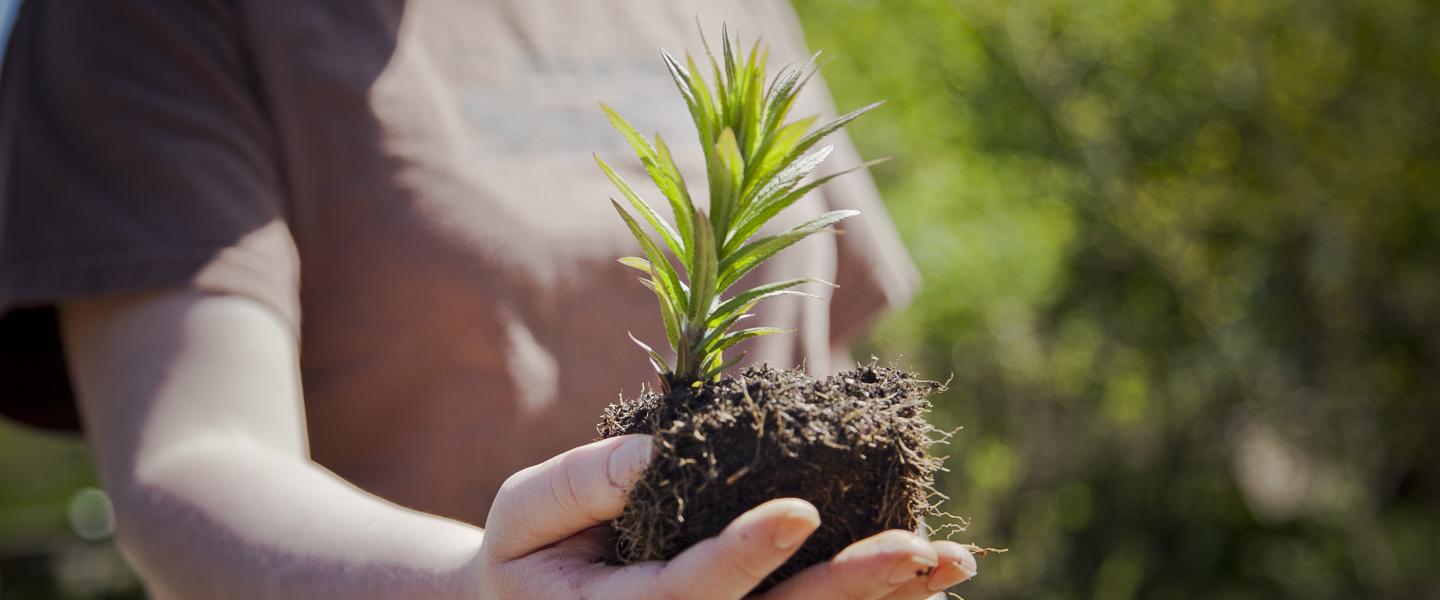Embracing a sustainable future means understanding and working with nature, not against it. How our landscapes are designed plays a significant part in supporting symbiosis, which is where the concept of holistic landscape design comes into play.
Take an in-depth look into the growing field of landscape design study and explore the foundation of holistic landscape design, including what it stands for, understanding the steps toward earning a certificate, and what promising careers exist in the field.
What is Holistic Landscape Design?
At its core, holistic landscape design is a unique combination of several different areas of study. It incorporates extensive knowledge of medicinal and edible plants and marries this knowledge with a deep-rooted passion for crafting sustainable, environmentally supportive landscapes.
Landscape professionals embody an ethos of respect and adoration for the natural world by creating landscapes that work in harmony with nature and leverage its strengths. Rather than seeking to control or impede nature's growth, holistic landscape design encourages it.
The promise of holistic landscape design extends beyond aesthetic or functional appeal; it carries the potential to improve local ecology significantly. As a designer, you will be able to make a tangible impact on your surroundings, crafting landscapes that not only please the eye but also positively contribute to human, plant, and cultural life.
How Do I Get Involved in Holistic Landscape Design?
There's no better place to embark on your journey into holistic landscape design than Bastyr University, known for its strong emphasis on integrative education and wellness. Our curriculum is designed to create a deep, emotional, physical, and intellectual connection with the Earth and the myriad organisms it supports.
Our certificate program boasts a range of course offerings, such as:
- Soil Ecology: This course revolves around the science of soil. Here, you'll learn about the diverse biology of soil, its core chemistry, and the importance of conserving this vital component of ecosystems.
- Mycology: The mycology course focuses on the ecological role of mushrooms in building and maintaining an edible landscape. Students study fungi’s roles in overall ecosystem health, including mycoremediation and microfiltration, and how mushrooms can transform toxic wastes into less harmful substances.
- Medicinal and Edible Plants in the Landscape: This unique course will take you through various plants with significant medicinal and culinary benefits, teaching you to identify, cultivate, and utilize them within your landscape projects. There’s an emphasis on the therapeutic properties of plants and how to propagate and harvest them.
- Permaculture: This course allows students to adopt a well-rounded approach to designs that consider ecological balance and longevity. It introduces the concept of permaculture design and its role in integrating sustainable, regenerative systems into any landscape. Students learn how the core set of permaculture design principles and ethics guides every step of the design process-–bringing natural patterns into design, utilizing ecological principles, connecting design elements with function, and utilizing natural energy sources as they flow through a design site.
What Can I Do With a Landscape Certification?
A certificate in holistic landscape design presents a host of career opportunities:
- Environmental Scientist: Operate on the front lines, studying human impacts on the environment, designing ecological protection and restoration plans, and advocating for sustainable practices. Kick-start a career filled with purpose and promising growth.
- Home Landscape Designer: Transform spaces into ecological sanctuaries that embody integrative health principles. Your role as a landscape designer revolves around utilizing innovative, science-led, and holistic landscape design approaches to create nurturing environments that promote well-being and balance between human, flora, and fauna communities.
- Landscape Educator and Designer: Harness the pioneering spirit of holistic landscape design to educate and advocate for integrative environmental health. You will work to create meaningful connections within the community and the academic sphere, to share your knowledge, and to foster a deep respect for interconnected landscapes.
- Industrial Ecologist: Align your passion with the industrial sector, helping organizations minimize their environmental footprints through informed practices in waste management and resource conservation. Critically contribute to the sustainable corporate realm.
- Nursery and Greenhouse Manager: Help landscapes bloom as you oversee the cultivation and management of plant life for various purposes, such as ecological restoration projects, educational programs, and more.
Hone Your Landscape Skills for a Greener Future: Bastyr University
Allow Bastyr University to be the launchpad for your green ambitions. Our Certificate in Holistic Landscape Design is not just a certification; it's a lifestyle, encouraging a deeper bond with nature and providing the skills needed for a meaningful and satisfying career. Experience the benefits of our approach, rooted in sustainability and responsible living.
Don't let your green passion be just a hobby; let it become the mark you leave on this world.
Request More Information about our offerings, schedule a call with our knowledgeable academic advisors, or jump right in and apply today. Your journey towards shaping a greener tomorrow starts here.
